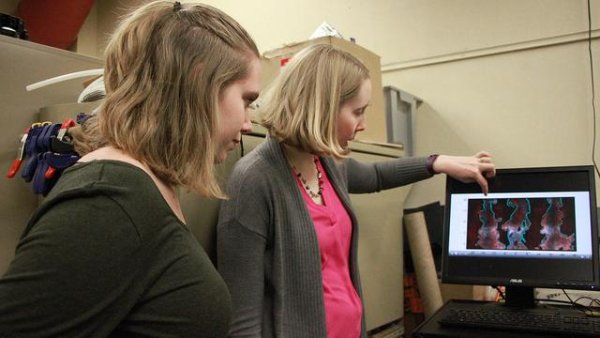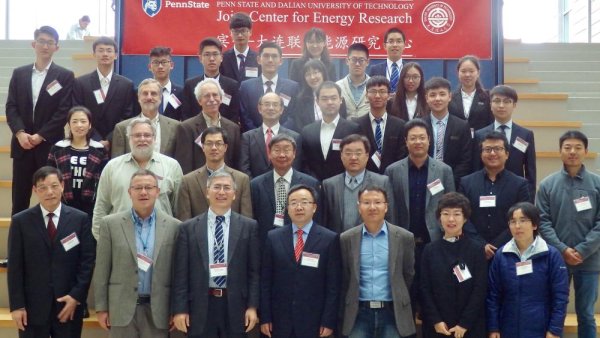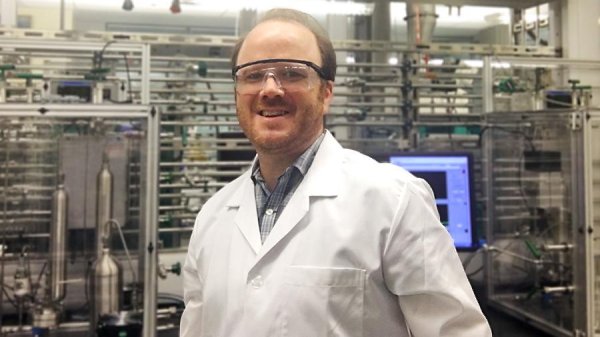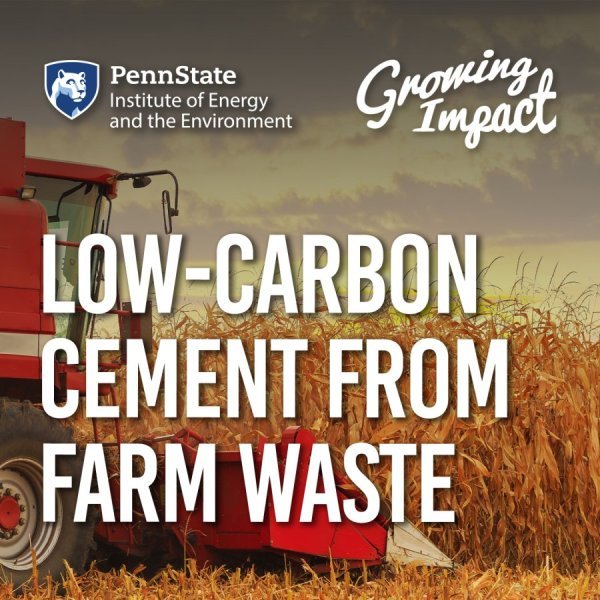Penn State promotions in academic rank, effective July 1, 2018
| psu.edu
The following is a list of academic promotions for tenured and tenure-line faculty members at Penn State, effective July 1.
Gorski to use NSF CAREER award to expand access to clean water and electricity
| psu.edu
Christopher Gorski, assistant professor of environmental engineering at Penn State, will develop devices that use electricity to desalinate water and can also generate their own electricity, thanks to an esteemed National Science Foundation Early Career (CAREER) award.
Integrative Studies Seed Grants awarded to faculty across University
| psu.edu
The Office for General Education has announced this year’s seed grants to support the development of Integrative Studies courses. The awarded proposals are representative of a wide range of academic disciplines, and include proposals from faculty at Penn State campuses across the Commonwealth.
Through NSF CAREER Award, Jacqueline O’Connor to make power generation cleaner
| psu.edu
Jacqueline O’Connor's work will not only result in new scientific understanding, but also insight for more robust design of ultra-low emissions gas turbine combustors.
Interdisciplinary projects awarded seed grants from IEE
| psu.edu
The 2017–18 Institutes of Energy and the Environment (IEE) seed grant recipients have recently been awarded to 16 groups of interdisciplinary researchers at Penn State. This year nearly $350,000 have been awarded to more than 40 researchers in five colleges at University Park as well as at four campuses.
Data driven dialogue: Scientists bring groups together on water quality concerns
| news.psu.edu
Shale Network, a team of scientists studying water quality around Marcellus Shale drilling in Pennsylvania, has spent the last six years fostering a dialogue between concerned citizens, watershed groups, government regulators and representatives from large energy companies around water quality data in the state.
New desalination method offers low-energy alternative to purify salty water
| psu.edu
Providing safer drinking water to those in need may be a little easier. According to Penn State researchers, a new desalination technique is able to remove salt from water using less energy than previous methods.
Partnership celebrates global synergy, accomplishments at joint energy workshop
| psu.edu
Members of the Penn State – Dalian Joint Center for Energy Research (JCER), a partnership between Penn State and Dalian University of Technology (DUT), one of the top research universities in China in energy and chemical engineering, met on campus recently to discuss ongoing research and collaboration initiatives and progress made in advancing clean energy research.
A curious quirk brings organic diode lasers one step closer
| psu.edu
Since their invention in 1962, semiconductor diode lasers have revolutionized communications and made possible information storage and retrieval in CDs, DVDs and Blu-ray devices. These diode lasers use inorganic semiconductors grown in elaborate high vacuum systems. Now, a team of researchers from Penn State and Princeton University have taken a big step toward creating a diode laser from a hybrid organic-inorganic material that can be deposited from solution on a laboratory benchtop.
Microbiome Center presentations to explore art and science collaborations
| psu.edu
How artists and scientists can work together to forge a better understanding of the world is the goal of a November mini-symposium spanning two weekly sessions sponsored by Penn State's Microbiome Research Center.
New CIMP-3D co-director Hickner to expand polymer and composites research
| psu.edu
As new co-director of the Center for Innovative Materials Processing through Direct Digital Deposition (CIMP-3D), Michael Hickner plans to use his background in polymer science and engineering to open new avenues of research. Hickner, Corning Faculty Fellow in the Department of Materials Science and Engineering, sees polymers and polymer-based composites as a major growth area.
New evidence of contaminants from fracking
| cmaj.ca
New evidence has emerged indicating that wastewater from fracking contains compounds harmful to human health. Fracking, a controversial technique for extracting oil and gas, involves injecting a water mixture deep into the ground to force open existing fissures. The process produces wastewater












